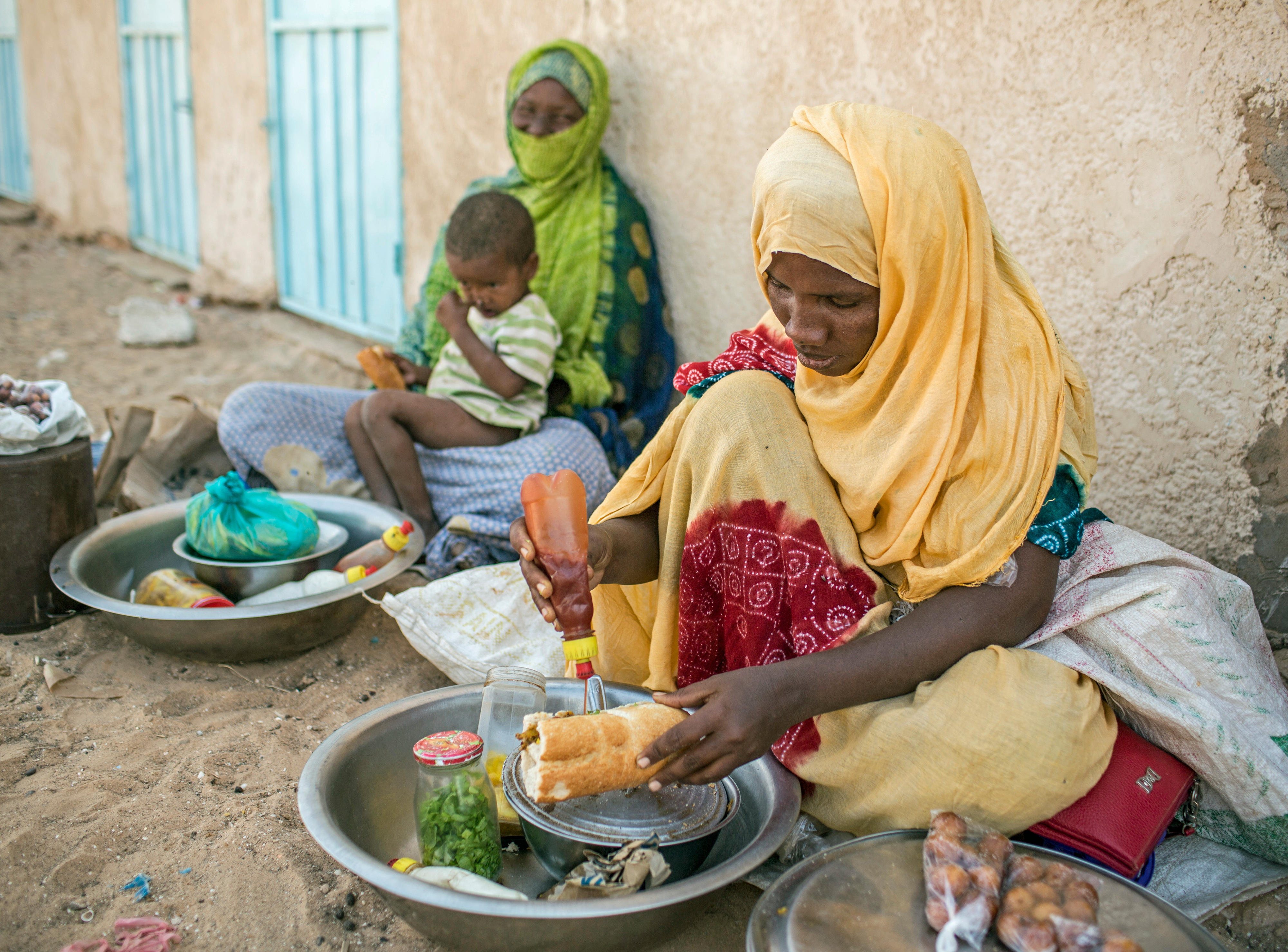Sahel region Establishing social protection systems with an effective crisis response
Street vendors in Ouad Naga, Mauritania
The Sahel Adaptive Social Protection Program (External link) (SASPP) is focused on the people of the Sahel zone, who are disproportionately hard hit by climate change and other shocks.
The aim of the programme is to support Burkina Faso, Chad, Mali, Mauritania, Niger and Senegal in developing and rolling out sustainable and adaptive social protection systems. That makes it possible to react quickly and effectively to climate-related or other shocks. It also makes households living under the threat of poverty more resilient to the impact of climate change.
With social protection systems that can be adapted to whatever crisis may hit, governments can get rapid support to the people affected. They can adapt their lives to the new situation, prepare better for future crises and cope with them if and when they occur. The programme combines social protection with measures for managing disaster risk and adapting to climate change. These are aimed at predicting shocks in good time so as to be able to respond appropriately.
The SASPP programme has proved successful and is changing the lives of people in the Sahel for the better.
- More than 4.2 million have been entered into the social register in the various countries of the Sahel. This gives them access to support from the social protection system, either on a one-off or regular basis.
- So far it has been possible to support more than 1.2 million people who have been struck by crisis in the six countries. This cushions the social and economic impact of climate-related and other shocks.
- Over 103,000 people have benefited from measures to promote economic inclusion, 77,000 of them women. This has a positive impact on them in terms of diversifying sources of income, food security, savings and mental wellbeing. It has also strengthened social cohesion and women’s equality in the countries of the Sahel.
The World Bank is one of the BMZ’s main partners in the region. The SASPP programme forms one part of Germany’s broad range of activities to strengthen social protection in the Sahel. The main partners involved in implementing the programme, together with the World Bank, are WFP, UNICEF, the GIZ and UNHCR. The BMZ promotes close cooperation between its partners both at regional and at country level. Especially important aspects are strengthening coordination and peer learning. A strong partnership has been established in particular between the World Bank/SASPP, UNICEF and WFP under which governments are supported in increasing the reach of adaptive social protection systems and reacting better to crises. Germany has contributed over 130 million euros to the SASPP, making it the programme’s biggest donor alongside the United Kingdom, Denmark and France.
As at: 05/01/2026
